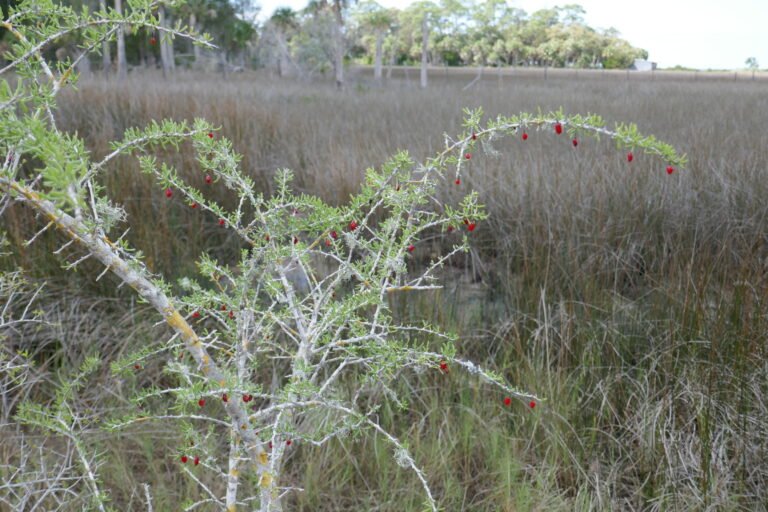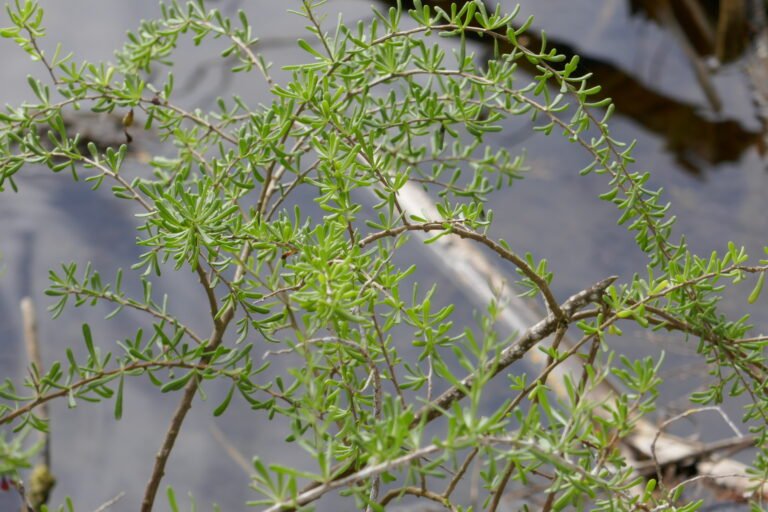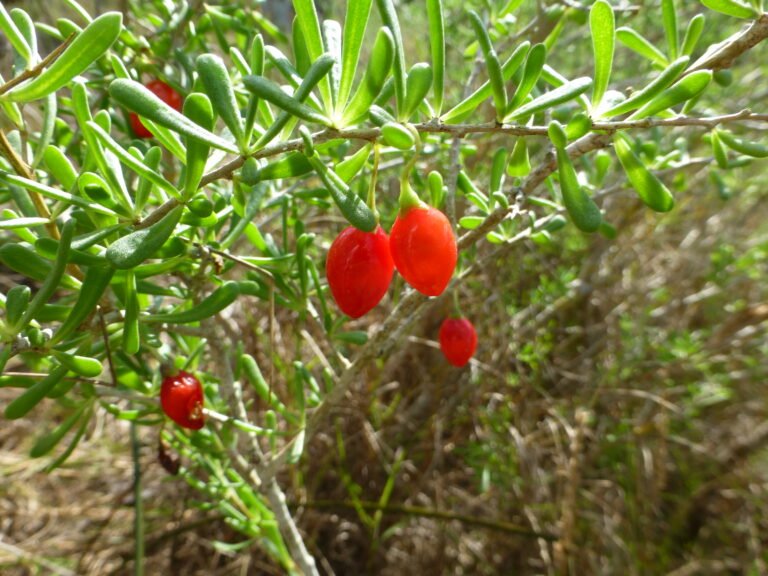Lycium carolinianum
(Christmasberry)

Common Name, Latin Name and Family
Its common names include christmasberry, Christmas berry, Carolina wolfberry, Carolina desert-thorn, and Christmas-berry.
Its Latin name is Lycium carolinianum.
It is found in the Solanaceae, or nightshade, family.
Form
Christmasberry is a tardily deciduous, and many times evergreen, shrub that rarely exceeds six feet in height.
It is sparingly branched with many of the curving branches ending in a sharp thorn.
Leaves
The leaves are dull gray-green, thick, succulent, 1/2 inch long, narrowly ovate, and smooth with entire margins.

Flowers
The flowers are pale lavender in color and are born in the leaf axils.
The corolla of the small flower may be lavender to nearly white with the throat streaked with purple.
The blooms appear in March through December.

Fruit
Christmasberry produces small bright red fruit. They are almost identical to goji berries (Lycium barbarum) which is native to China.
The fruit ripens in late autumn or early winter. The berry is a bright, lustrous red when ripe and elliptic to oval in shape. Birds are very fond of the fruit.

Habitat
Christmasberry is very salt tolerant and is found growing in salt water all along the coast of Florida.
In rocky areas along the shore it can be found growing in between rock crevices at the water’s edge.
Hernando County has a beautiful example of it in the wild at Jenkin’s Creek Park. Head across the footbridge and you will find it growing throughout the walking paths.
Native Range
In Florida it occurs naturally along the coastline around most of the state.
It is native to the following states: AL, FL, GA, LA, MS, SC, and TX.
Landscape Use
Christmasberry grows in full sun, with average moisture, and just about any type of soil.
Some native plant nurseries in our area carry Christmasberry.
Wildlife Use
Buttonbush is a deciduous shrub that grows to 12 feet in height.
Propagation
It can be grown from seeds, root cuttings, and transplants.
You Might Also Like: Coral Bean
